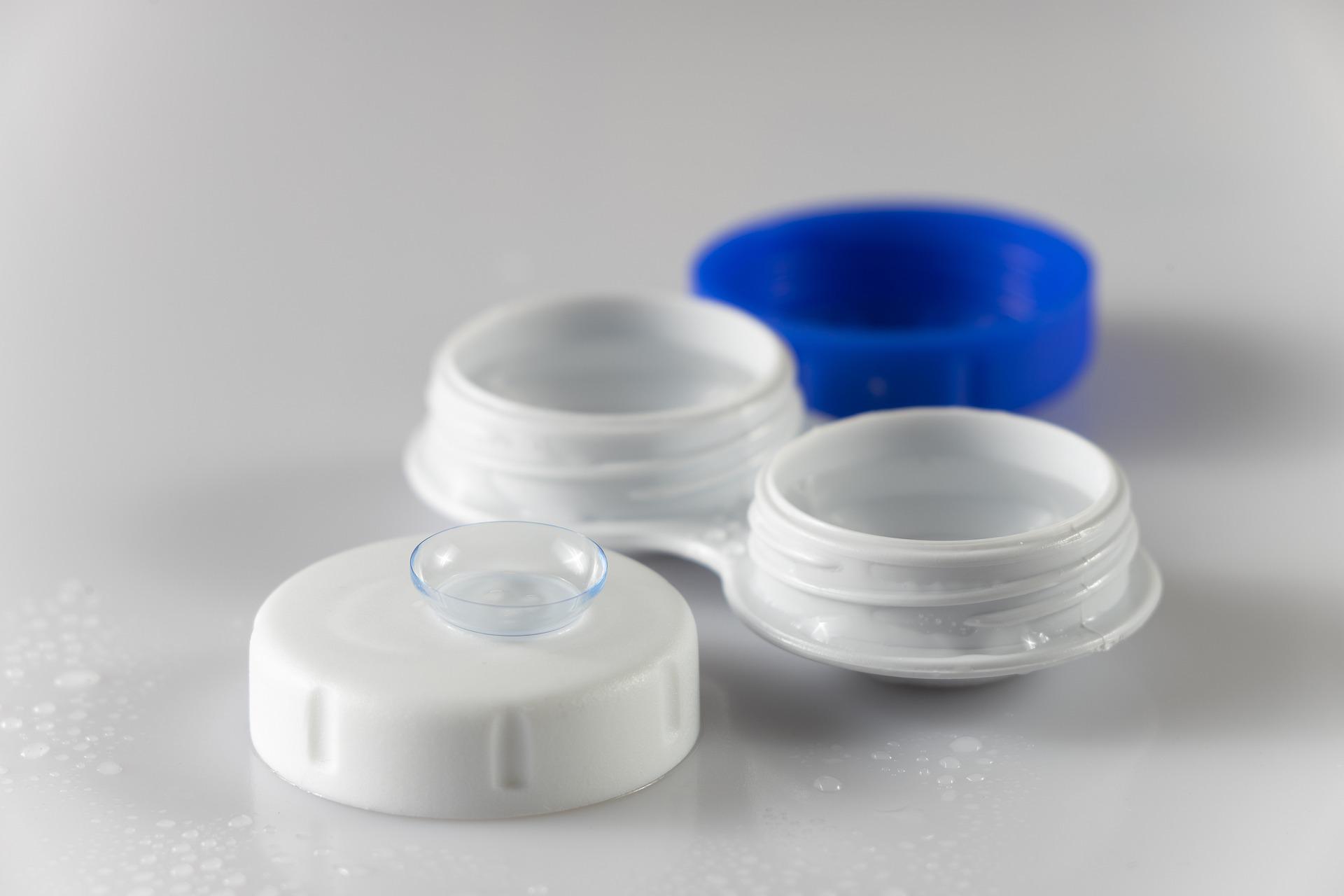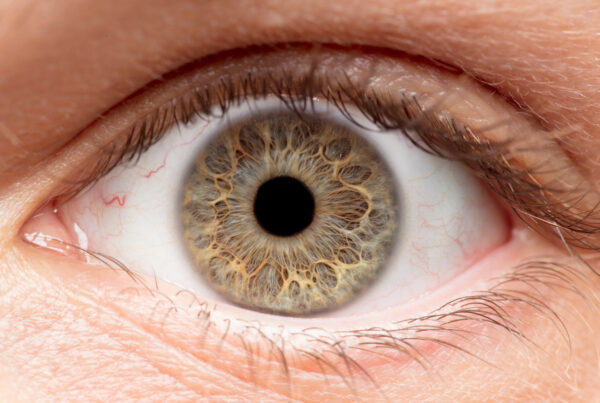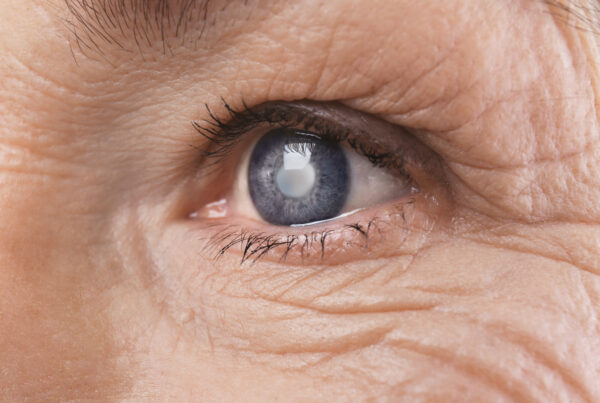
Do you ever wonder if you’re taking care of and using your contact lenses correctly? Many people have been wearing contacts for years and still aren’t practicing proper care and hygiene, which can lead to infections, dry eyes, worsening allergies, and general discomfort. Most of us know the big rule of not sleeping in contacts, but what about everything else? What happens exactly when you sleep in them or wear them too long? Can you put in eye drops over them? Are they ok to wear if you have allergies, or your eye is red? Knowing the limits of wearing contacts is key in maintaining a healthy eye, extending the life of your lenses, and avoiding sight-threatening infections.
Let’s talk about the elephant in the room—you’ve probably slept in your lenses before, and you might even do it frequently. In fact, some lenses are designed to be worn while sleeping but should still be removed at least once a week. The biggest concern is that overwear of the lens will cause a tiny opening on the cornea (front clear windshield of the eye), and bacteria from your skin, the environment, or water will invade the opening and cause a corneal ulcer. Ulcers are extremely painful infectious sores that require frequent antibiotics. Even after healing, the ulcer may leave a permanent scar that may cause blurry vision and uncomfortable glare.
Ulcers aren’t the only concern. Wearing a contact lens overnight (even the approved ones) or simply over-wearing them will decrease the amount of oxygen the cornea receives. Just like your windshield, the cornea needs to be perfectly clear for good vision. The cornea does not have blood vessels for this reason. To obtain nutrients, the cornea receives oxygen mostly from the air around you. Contact lenses do allow some oxygen to get through but need to be removed for full breathing. If the lens is constantly there, the cornea will be starved for oxygen and begin to grow new blood vessels to compensate. This is bad because the cornea needs to be perfectly clear and without blood vessels for you to see well through it. Once contact lens wear is decreased or stopped altogether, the blood in the vessels will fade but the ghost of the vessel will always be there and may even refill if improper lens wear is resumed.
Let’s say your eye doctor has you on an eye drop, is it ok to use that drop with the lens in? Most medicated drops have ingredients that will degrade the lens over time, making it uncomfortable, dry, and blurry. The lens may also absorb the medicine and allow too much to be concentrated on the surface of your eye, causing toxicity damage to the cornea. Artificial tears do not contain medicine and are usually safe to use with lenses if they are marked as such. Some may have preservatives that will harm the lens, which is why it is important to check the label. If you have dry eye, it is encouraged that you use lubricating drops even with the lens in.
Being in the Midwest it’s likely that you suffer from allergies. Contact lens wear is ok if you’re having a mild flare-up, but with significant symptoms of itching/irritation, watering, and discharge, the lens should be removed and the allergies should be treated. Allergens easily attach themselves to contact lenses and can make your allergies worse.
Red eyes can be a sign of MANY things: dryness, allergies, infection, inflammation, foreign body, abrasion, and even more. If your eye is red, it’s best to skip the contacts that day and opt for glasses. The cause of the redness can be a multitude of things, most of which will worsen with continued lens wear. This is why backup glasses are extremely important even if you wear contacts a majority of the time.
6 short tips for healthy contact lenses:
- Do not sleep in lenses. If your lens is approved for sleeping, it still needs to be removed at least once a week, cleaned, and stored in the case for 1 night.
- Do not use homemade saline, reuse saline, swim in lenses, or shower in lenses due to microbes naturally found in water.
- Use a hydrogen peroxide cleaning system at least once a week for deep cleaning.
- Gently massage the lenses with saline in your palm with your pinky after a few days of wear to remove any deposits or allergens.
- Do not overwear the lenses. Sometimes you can stretch out the life of the lens an extra few days to a week if you have been cleaning it properly, but ultimately it needs to be disposed of in the proper amount of time.
- Ask your doctor about switching to a daily disposable lens that can be removed and thrown away after each day, especially if you have dry eyes or allergies.
If you have questions about anything mentioned above or need that pair of backup glasses, don’t hesitate to contact the SureVision office.



